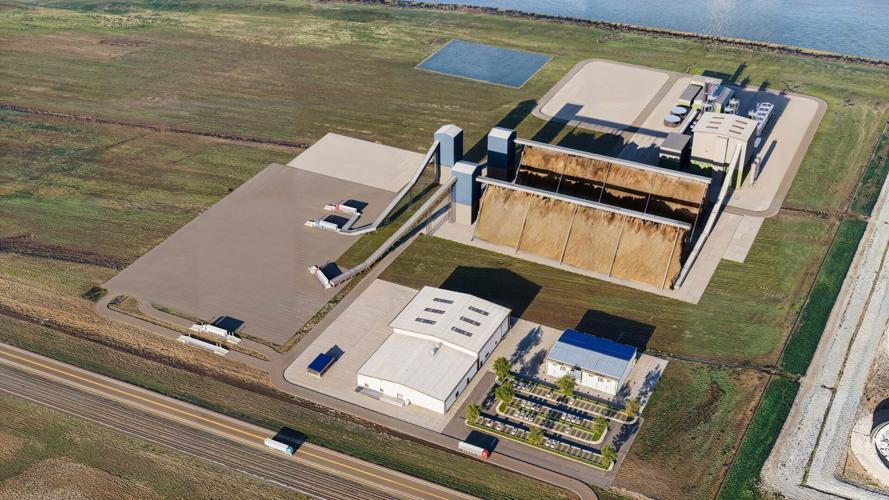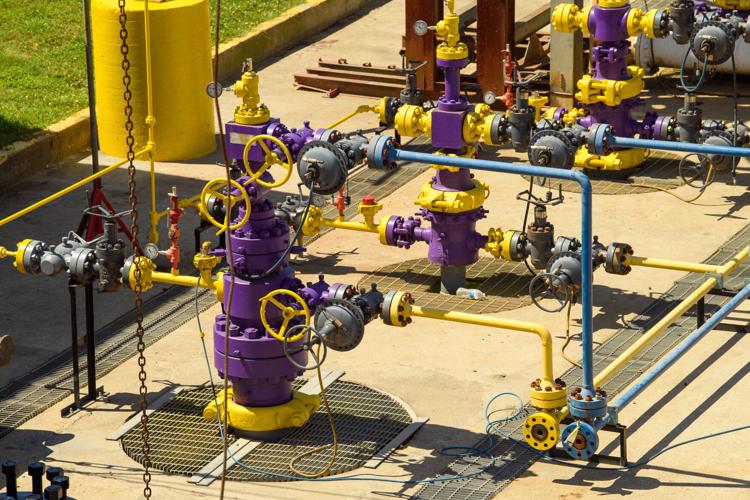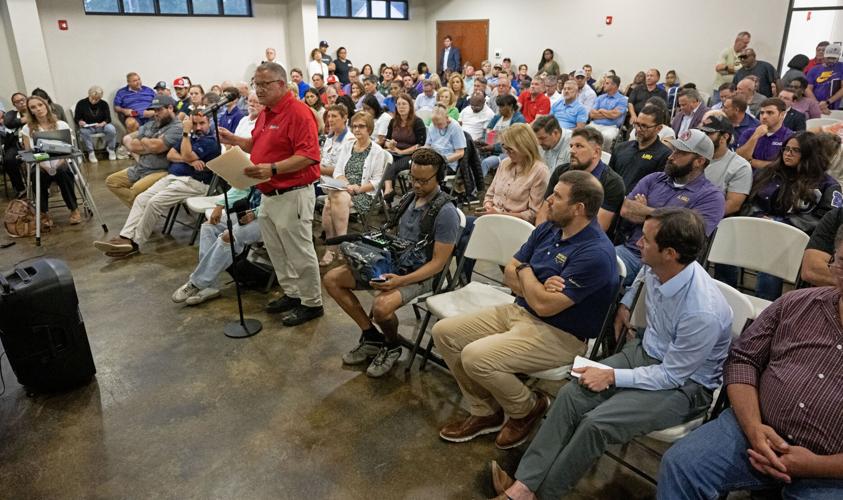Over the past four years, $49 billion in new industrial projects have been proposed in Louisiana to make hydrogen, ammonia and other products — and all of them are banking on permanently storing underground the greenhouse gas pollution they would produce.
"Carbon capture and sequestration" is a major economic development focus in Louisiana, given the state's suitable geology and the industry's move toward reducing emissions of carbon dioxide and other gases linked to climate change.
But people in rural areas, many who might otherwise support new industrial and oil and gas proposals, are fighting plans to put carbon dioxide under their land, and their representatives in the state Legislature have launched a major effort to more strictly regulate or even block carbon storage.
The House Natural Resources Committee is expected to tackle close to two dozen bills in a potentially marathon hearing at the end of the month. The chairman of committee, Rep. Brett Geymann, a Lake Charles Republican, predicts it could be a "wild ride."
In an opening move before that intense debate, a Senate committee unanimously blessed a bill that Geymann and his Senate counterpart, Bob Hensgens, an Abbeville Republican, hope could be a compromise to measures aimed at blocking underground carbon storage. The committee-approved bill would give local concerns some weight in the state permitting process.
In a public discussion on carbon capture earlier this month, Geymann and Hensgens said the bill from Republican Sen. Mike Reese of Leesville will be important when House debate opens up.
Geymann predicted that passing "local option" bills will be challenging.
"But the people want that," Geymann said. "They want to have that discussion. We're going to have that discussion."
Several bills, including House Bill 4 by Republican Rep. Chuck Owen of Rosepine, would give police juries or voters the ability to block carbon storage in their parishes, in a fashion similar to local-option elections on video poker in 1996.
State Rep. Danny McCormick, a Republican from Oil City who has spent his private career in the oil and gas business, has taken a tougher tack. He's filed one bill to ban carbon capture statewide and another to declare a one-year moratorium.
Concern over leaks, property rights
McCormick, Owen and others are responding to constituents worried about permanent storage polluting underground drinking water supplies and about carbon dioxide leaks from pipelines. And some property owners are concerned that carbon storage zones could block drilling for deeper oil and natural gas deposits under their lands and interfere with basic property rights.
They point out these rural areas generally aren't getting the new plants, tax revenue and jobs from carbon capture — the facilities are located primarily in other parts of the state — but are being saddled with the pipelines and underground storage areas and any associated risks.
"We're in a unique position, I think, where we are in the state," Reese said. "Because we don't really have emitters of CO2, right, but we have multiple projects that seek to store CO2 in our area. It's not something our citizens are comfortable with."
Industry and academic experts say the technology is safe and largely relies on existing methods, putting carbon dioxide back into formations that can naturally store the gas once it's converted into a near-liquid state. Industry groups add that Louisiana is primed for the new industry it will draw but is also competing with other states to be the technology's leader.
While the state Office of Conservation has approved carbon capture "exploratory" wells to evaluate underground conditions, no actual injection wells or storage operations have been greenlighted. The state's first hearing on an injection well is set for May in Cameron Parish.
Reese's Senate Bill 73 would fit into that process by requiring the state conservation commissioner to give "substantial consideration to local government comments" on carbon injection well permits.
The bill wouldn't require the state to act on those comments. But during the recent Senate committee hearing on Reese's bill, he said the "substantial consideration" language was taken from the process for coastal zone permits.
Reese said some of those permits were denied after local officials spoke against them. He said his bill attempts to replicate that, giving local concerns similar weight for carbon capture permitting.
Reese's bill has drawn opposition from a Louisiana climate group and trade associations representing the chemical and oil and gas industries. The trade groups are also against bills proposing more rigorous restrictions on carbon capture.
In an interview, Hensgens said he believes Reese's bill, which is headed for a Senate floor vote Tuesday so it can reach the House, strikes the right balance.
"I think in a very difficult situation and a very difficult subject this year, Senator Reese has found a middle ground between saying how important carbon capture is going to be to our energy industry and keeping the locals and the public informed and giving them some say-so about what happens," Hensgens said.
'Let the parishes decide'
Reese, however, said he doesn't see his bill as a middle ground alternative but an addition to measures that would give locals an actual vote on whether to allow carbon capture in their communities. He said that he would "vote for every one" of those "local option" bills.
He called his bill on local government input for state hearings "just one more layer of protection that'll hopefully complement the work that they're doing in the House."
Roland Hollins, an Allen Parish police juror who leads a collection of southwest Louisiana officials opposed to carbon capture, said he appreciates Reese's bill.
It would give local governments more say than they have currently over a process that is moving quickly into their communities, he said. But he added that the parish coalition he's a part of doesn't want just half- or three-quarters authority over the issue.
He said his parish asked Gov. Jeff Landry to halt the carbon sequestration permitting process this spring while so many bills are pending in the Legislature. A public hearing for two new exploratory wells in Allen Parish is planned later this month.
Locals should have the final say, Hollins said.
"Let the parishes decide," he said. "I don't know of a more American way than to let the people decide if the benefits are worth the risks, you know."












